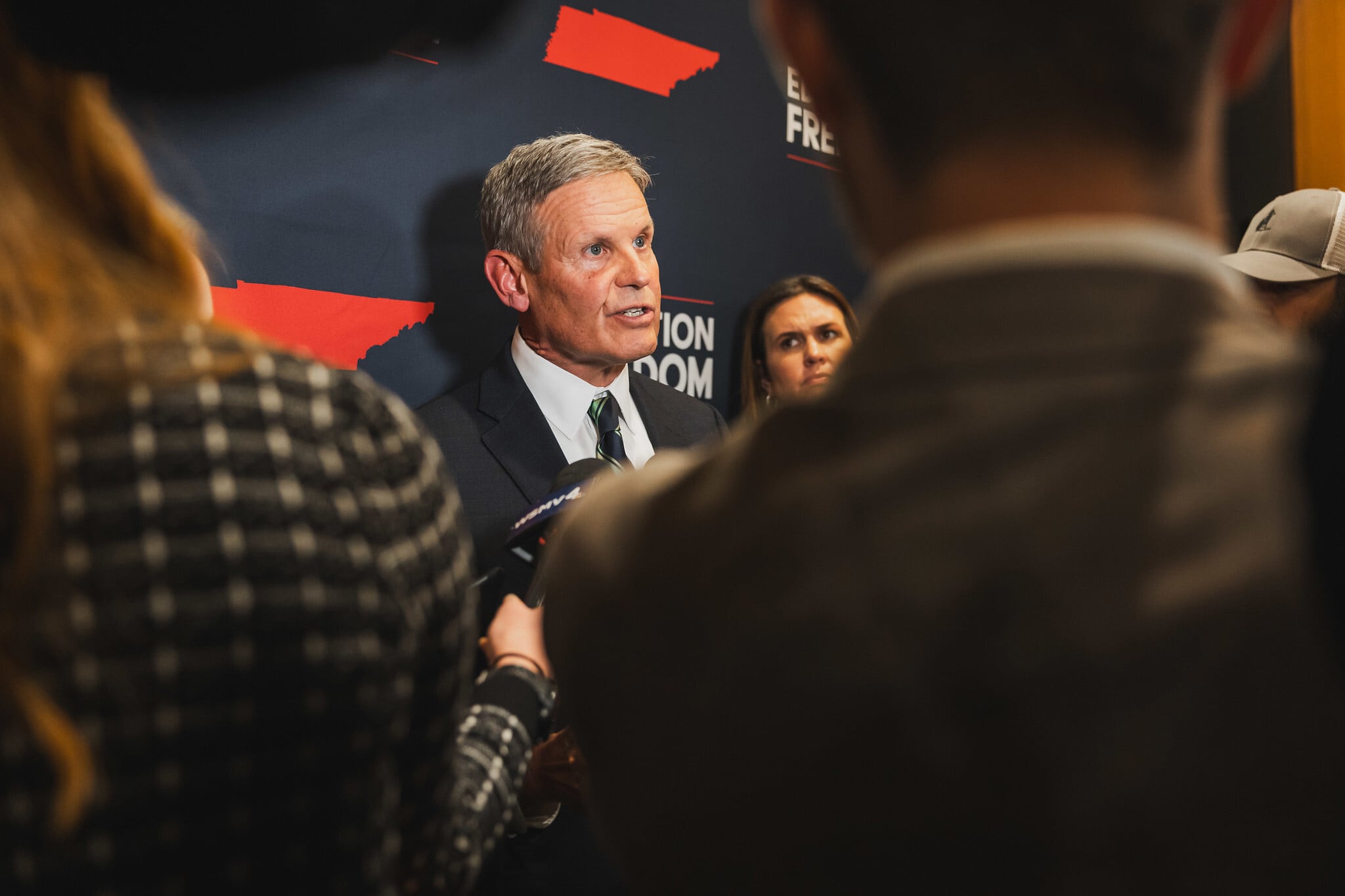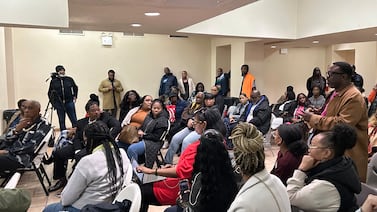Sign up for Chalkbeat Tennessee’s free newsletter to keep up with statewide education policy and Memphis-Shelby County Schools.
Gov. Bill Lee announced Wednesday that he’ll call Tennessee lawmakers into a special session this month to take up his statewide school voucher proposal, as well as “public safety measures” to prepare for immigration policies under President-elect Donald Trump’s administration.
He also wants the legislature to approve a $450 million disaster relief package for Hurricane Helene flooding last fall in northeast Tennessee, including $20 million to rebuild Hampton High School in Carter County.
The session will begin on Jan. 27.
Lee said he will issue his official call and provide more details in the coming days.
The announcement comes just days before Trump takes office on Jan. 20, and one day after the 114th General Assembly convened a new session headlined by Lee’s Education Freedom Act.
Lee hinted last week that he might use a special session to fast-track the voucher legislation: He told reporters that he wants the universal voucher bill approved in early 2025 in hopes of starting a statewide program this fall to let more Tennessee families use taxpayer funding to send their children to private schools.
Disaster relief was expected to be part of a potential special session. Lee’s office said Wednesday that he’ll propose “immediate and budgetary action to support ongoing recovery efforts and allow for proactive preparation for future emergencies.”
Inclusion of immigration policy was somewhat of a surprise, however, even as Trump has pledged to order mass deportation of immigrants who are not in the country legally. Reports indicate Trump may do away with the federal government’s sensitive-locations policy that limited immigration enforcement in schools, hospitals, and churches, leaving those institutions to plan for ways to protect students and families.
In December, the governor tweeted that he had directed key state agencies to be ready on Day One of the Trump administration.
This will be the sixth special session called by Lee since he took office in 2019.
The most recent one, in August 2023, spotlighted public safety after an intruder shot and killed three children and three adults at Nashville’s private Covenant School earlier in the year. In their six days of work, lawmakers approved three bills designed to speed up background checks for gun buyers, provide free gun locks to Tennessee residents, and require an annual state report on human trafficking, but none to restrict access to guns.
Just as the public safety session drew protests over the state’s lax gun laws, the upcoming special session is expected to draw demonstrators to the state Capitol, especially over the governor’s voucher plan.
Lee proposes to offer 20,000 private school vouchers of $7,075 each in the first year. Half of them would be for families whose income is below a certain threshold — $173,000 for a family of four. The rest would be for any student, regardless of family income. Most of the restrictions would be lifted in the program’s second year, with plans to expand the program by 5,000 students annually.
A similar plan collapsed in finance committees last spring over disagreements within the GOP supermajority, but this time, all of the legislature’s top Republicans are unified behind the governor’s plan.
“The majority of Tennesseans, regardless of political affiliation, have made it clear that they support empowering parents with school choice, and the best thing we can do for Tennessee students is deliver choices and public school resources without delay,” the governor said Wednesday in a joint statement with Lt. Gov. Randy McNally, House Speaker Cameron Sexton, and majority leaders Sen. Jack Johnson and Rep. William Lamberth.
They also supported a spotlight on public safety measures, calling Trump’s election a “mandate to enforce immigration laws.”
Democrats said the governor’s call for disaster relief is long overdue for helping flood-ravaged counties in the rural, mountainous counties of northeast Tennessee. However, they reiterated their opposition to a truncated debate on expanding vouchers statewide, especially when such programs in Arizona, Arkansas, and Indiana are putting a financial strain on state budgets without improving academic outcomes.
“When we open up this can, when we put this into law, it’s not something we can go back from,” Sen. Raumesh Akbari, of Memphis, said at an impromptu news conference at the Capitol.
House Democratic Caucus Chairman John Ray Clemmons, of Nashville, said school vouchers are a complex idea that should be thoroughly debated with public input.
“To try and rush this substantive and highly controversial policy through in a 3-day session, along with disaster relief and immigration policies, is an unconscionable attempt to keep the general public in the dark and prevent sunlight from shining on our legislative process,” Clemmons said.
The president of the state’s largest teachers organization agreed.
“While the General Assembly considers measures to support those recovering from a natural disaster, they should refrain from creating a man-made disaster,” said Tanya T. Coats, a Knox County educator who leads the Tennessee Education Association.
“Governor Lee should focus on helping our neighbors, not pushing his statewide voucher scheme backed by out-of-state special interests.”
Marta Aldrich is a senior correspondent and covers the statehouse for Chalkbeat Tennessee. Contact her at maldrich@chalkbeat.org.






